Pursuit of Play, vol.1: Preseason

We’re only a couple weeks away from the first regional tournament of the season. Both of the kids have already put points on the board by winning a local tournament, but there are still plenty of questions about what exactly we want to play to that first tournament. We are in prep mode…oh, and there have been some big format changes, and I have some deep thoughts.
This is the Pursuit of Play, a year on the European competitive Pokemon circuit. Previous editions are here.
The Pokemon Update
There have been some interesting changes in the world of Pokemon for this new season, so let me lead with the most important one: the Pokemon Company has changed the requirements to qualify for the World Championship. Last year, there was a point threshold and everyone who earned enough points through the various local, regional, and international tournaments automatically qualified. BTW, there are 3 age divisions in competitive Pokemon:
- Juniors are under 13.
- Seniors are between 13 and 17.
- Masters are 18 and older.
This year, the threshold is based on overall standing - the top 75 juniors in Europe qualify, the top 100 seniors, and the top 100 masters. This was a cause for some heated debate online, because it seems very clear that it’s meant to make the World Championship more competitive - especially at the masters level. You may be surprised to learn that the masters division is not only the largest division in terms of number of players, but the largest by an order of magnitude. At a typical regional tournament there will be somewhere between 100 and 250 players in each of the Junior and Senior divisions. There will be somewhere between 1,500 and 2,500 players in the Masters division. I guess this shouldn't be that surprising, given that there's no upper age limit, right?
Anyway, this change in qualification is especially tough for the US juniors division, where there are just a lot more players who qualified last year who won’t this year. It’s not quite as tough for the European juniors, so we breathe a bit of a sigh of relief.
But not that big, because there’s a reason I mentioned all 3 age divisions: in our household we have a competitor in all 3. Tommy has officially aged up from juniors to seniors, and that does mean they’ll face stiffer competition. Nate stays behind in juniors, where the top of the table is pretty barren - Tommy wasn’t the only top junior who aged up; by my count, 15 of the top 25 players last year also moved up. I, of course, will be playing in the masters division. This is almost comical, given how far my actual acumen is from mastery.
Each of us has a goal for the season:
- Nate really wants that $5k travel award to the World Championship as well as his first ever regional top 8. He came so close on both fronts last year, and with the field looking more open he sees opportunity.
- Tommy is focused on Worlds qualification. With the step up in level of competition, that feels attainable. Getting into a regional top 8 is a stretch goal.
- Me? My hopes are nowhere near as grand. Qualifying for worlds is almost an impossibility. Even maxing out points from my local events is going to be difficult, because the Netherlands has 5 players who finished in the top 25 in Europe last year. But I’m not really in it to be ultra competitive. My style in almost all games[1] is more about finding novel and unexpected ways to play, so my goal is to build a rogue deck that can finish in the top half of a regional tournament. The stretch goal is to make it to the second day of a regional tournament.
We were really hoping that next year’s World Championship would be back in Europe. Alas, it’s in Anaheim, California. Could be worse, but just like with Hawaii last year, we need at least 1 travel award and would also like to get some top 8 regional money to entertain the idea of going.
Reflections on Play
I have a few big reasons that I’ve decided to become a competitor and not just a chaperone & documentarian[2]. The biggest one is also the simplest: it’s fun. I concluded the Pokemon Travelogue like this:
When they interviewed the young man who had just won the Junior division, they asked him what he was going to do now that the tournament was over and he responded without missing a beat that he wanted to find his friends and play more Pokemon. At the time, I was totally baffled by that instinct….But as I watched the two kids smiling, laughing, and playing…well, I think I get it.
Sitting across from someone - whether a friend or a complete stranger - and participating together in this thing that you both enjoy when the thing itself has been incredible well engineered for challenge and enjoyment is great. It’s much better than standing around a convention center trying to ascertain what your child is doing.
But there’s also something unnerving about it, and I see a lot of value in deliberately putting myself into that place of discomfort. Over the past year, I’ve ended up playing a lot of Pokemon, and when I play I find myself getting locked in and focused in a way that happens with very little else. I get nervous about the games to the point that sometimes my hands start shaking. I get adrenaline crashes after playing at times.
It’s freaking great, so I want to keep exploring this experience and creating a context for it.
As I’ve started this new immersion into the world of Pokemon, a couple things are already jumping out to me that are relevant in thinking about designing for play but also just designing experiences that help people to thrive.
The relationship of skill and identity
The biggest idea I’m working through and will probably return to throughout the year is that in the design of learning we tend to overemphasize the development of skills and dramatically underemphasize the development of identity. Even as I think about how to unpack this, I can intuitively feel how complicated it is. To distill it simply, the cultivation of skill happens within a social context. The skills that are emphasized are reflective of the culture and values that prevail within that context. Too often, someone masters the skills without also understanding the context, and that can hinder their ability to exercise their skill. Of course, conversely, it can also be a key to help them use their skill subversively.
This is what’s behind ideas like stereotype threat: with stereotype threat, a person who is a fish out of water and is aware of how they are perceived feels excessive pressure and stress related to that perception. I remember reading a lot about it with regards to first generation college students in the United States; a common stereotype they have to deal with is the feeling that they don’t belong. When they encounter the kind of difficulties that many people know are just common growing pains in the transition from high school to university, they are more likely to interpret it as a sign that they got in over their heads than peers whose parents attended university - even if they are just as academically qualified or moreso than their peers[3].
Skills are insufficient without an accompanying sense of belonging…but where the bar is for those two things - and especially the bar relative to each other - differs wildly from one context to another. Within ostensibly elite institutions, the bar for both things starts out high. They are breeding grounds for imposter syndrome. In some of them, gatekeeping is explicit and valued[4].
As an immigrant who has spent most of his adult life in cultural milieus outside of the one I was raised in, I think about this a lot. I think about the way we can adopt superficial signifiers before we understand the deeper values they represent…and how sometimes we never truly do. I think about my own conflicted relationship with the idea of belonging and how I always live in a contradictory state of both belonging and not…and how both sides of that coin can act as asset as well as liability.
What I’m most interested in are environments where the barrier to entry on both fronts is low, but there are opportunities for ongoing growth in both fronts such that skill and identity are mutually reinforcing of the development of the individual as well as the community.
This is a substantial part of the reason that I was initially impressed by the Pokemon community and continue to be so, and so this year I’m planning to both document and explore my own skill and identity growth.
The false dichotomy of theory and practice
The second idea is something I’ve been grappling with for a long time, and it’s an idea that seems to originate in the classical era and has perpetuated itself in a lot of our systems of learning as well as our systems of work: we want to separate conceptual work and applied work[5]. I want to call BS on this. There may have been a time when it was a useful construct, but I think it is increasingly less relevant. The way that information work often manifests itself through a digital interface obscures this a little bit, because it makes us see information work as something more conceptual than practical, but it is very much both things: it is mastering certain bodies of knowledge to the extent that one can use them to create and deploy solutions to complicated problems. It is different from classical philosophizing because it goes beyond having interested and complicated ideas - it has to manifest in actual working solutions. It is also different from what we’ve historically thought of as vocational work because of how often it involves new and novel problem solving.
Why am I thinking about this in regards to play? Because I think a lot of games require the player to exercise both the conceptual and applied domains. I am very interested in identifying and/or designing more constructs that bridge this divide.
A tangent, then: I spent a lot of this summer around teenaged boys who were obsessed with cars. I was dismayed to discover how often their only formal educational option for pursuing that interest requires choosing between a college preparatory and vocational program. I’ve done some cursory googling, but I can’t find a high school anywhere in the US that puts teenagers in a garage working with cars as a way of learning future relevant STEAM skills beyond basic automotive technician work (and there’s nothing wrong with a program to become a basic auto tech if that’s the thing that you want to do. I just see it as excessive pigeonholing.) At the very least, a place like Detroit should have this through some sort of badass industry partnership. I would love to be wrong about the nonexistence of this thing. If you know of it somewhere, please point me in that direction.
I’m going to be working through both of these ideas as the year goes along, with plenty of others along the way. Should be a wild ride. To wrap this edition up, a couple recommendations…
I think you should read…
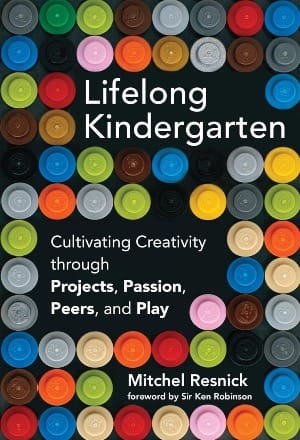
This book is almost a sacred text for me. It’s a distillation of the principles that Resnick has built the Lifelong Kindergarten lab at the MIT Media Lab around:
- Passion
- Peers
- Projects
- Play
All of these principles are reflective of a way of learning that people often feel is acceptable in the early years but must be supplanted by more serious approaches as a person matures, and Resnick’s book and the work that it represents act as a critique of the idea that those principles should be left behind.
I think you should hear…
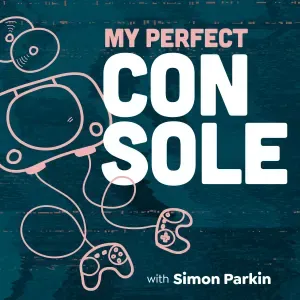
I always describe My Perfect Console as one part Desert Island Discs (aka, which 10 songs would you bring with you if you were abandoned on a desert island) except for video games, and one part oral history of the videogame industry. It’s been around for a couple of years, so there’s a solid back catalogue, and host Simon Parkin’s years as a videogame journalist mean that he is able to bring in a diverse range of guests. Be prepared, though, that you might increasing your spending on Steam if you listen to it enough. One of my favorite episodes is here.
Next time: the wrap up from Dortmund, Germany - our first regional tournament of the year, and some thoughts on techs, techniques, and technology...
- including the game of life
- though I will continue to be both of those things too
- BTW, if you want to go deep down this rabbit hole, I can’t recommend Geoffrey Cohen’s work enough.
- think of elite universities
- and to valorize the former

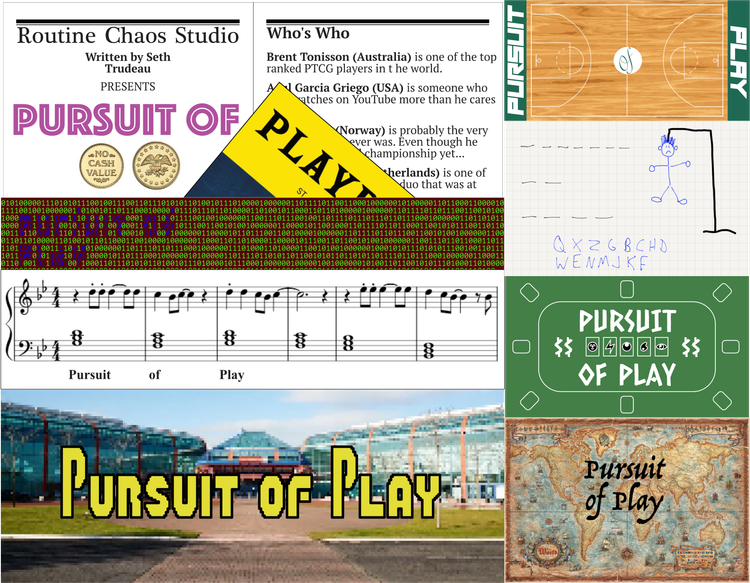

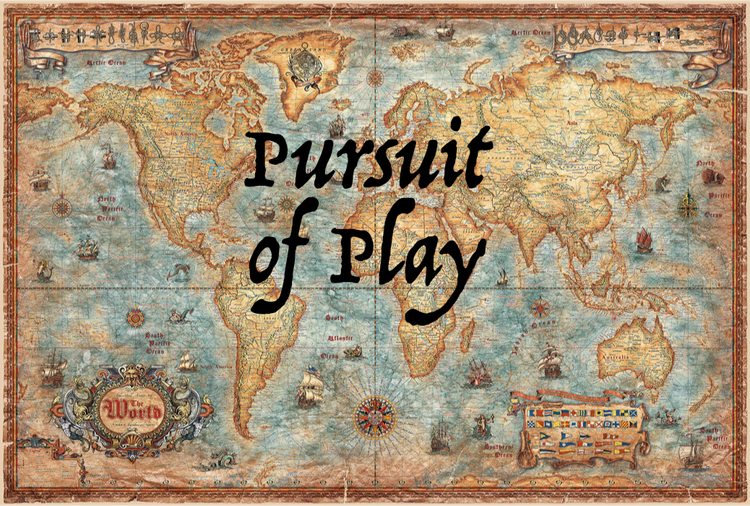
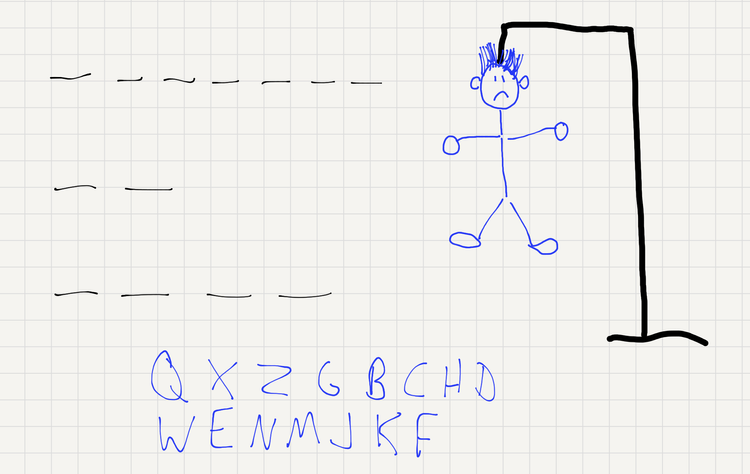
Member discussion